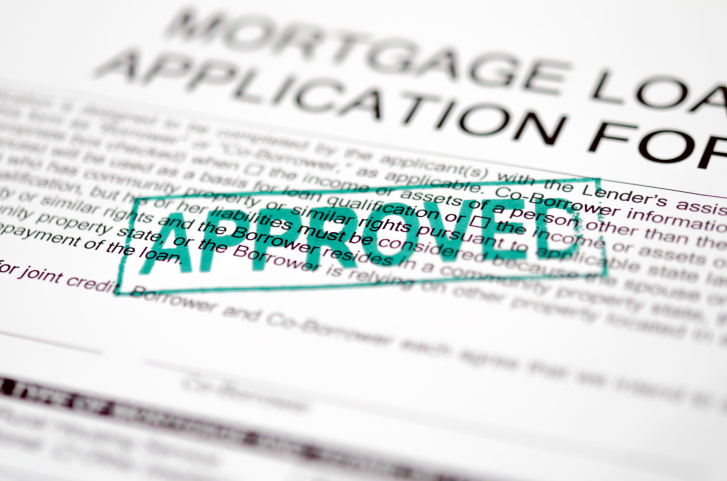What’s Ahead For Mortgage Rates This Week – August 10, 2020
 Economic readings released last week included construction spending, public and private-sector job growth, and government reports on initial and continuing jobless claims. Freddie Mac also released its weekly report on average mortgage rates.
Economic readings released last week included construction spending, public and private-sector job growth, and government reports on initial and continuing jobless claims. Freddie Mac also released its weekly report on average mortgage rates.
Construction Spending Falls in June
Commerce Department reporting for June showed lower construction spending for the fourth consecutive month, but spending fell by -0.70 percent as compared to May’s negative reading of -1.70 percent. June’s construction spending was $1.36 million at a seasonally adjusted annual rate.
Residential construction spending fell by 1.50 percent in June as public construction spending fell by -0.70 percent. Analysts said that construction spending has held up relatively well in the pandemic as spending was up 0.10 percent year-over-year in June.
Public and Private Sector Jobs Growth Slows Sharply in July
ADP reported 167,000 private-sector jobs added in July as compared to 4.31 million jobs added in June. A resurgence in coronavirus cases contributed to the downturn, as consumers, employers and workers remained cautious and followed state and local guidelines for minimizing exposure to the Covid-19 virus. The leisure and hospitality sector led the falling private-sector jobs growth rate by adding 38,000 jobs in July as compared to approximately two million jobs in June.
The government’s Non-farm Payrolls report posted 1,76 million public and private sector jobs added in July, which surpassed the expected reading of 1.68 million jobs added but fell short of June’s reading of 4.79 million public and private sector jobs added.
The national unemployment rate decreased to 10.20 percent in July and was lower than June’s reading of 11.06 percent and the expected reading of 10.60 percent. While higher than pre-pandemic unemployment rates, July’s lower reading was good news amid overall economic hardship.
Mortgage Rates Reach Another Record Low; Unemployment Claims Mixed
Freddie Mac reported another week of record-low mortgage rates. The rate for 30-year fixed-rate mortgages averaged 11 basis points lower at 2.88 percent. Rates for 15-year fixed-rate mortgages averaged 2.44 percent and were seven basis points lower; rates for 5/1 adjustable rate mortgages averaged four basis points lower at 2.90 percent. Discount points averaged 0.80 percent for fixed-rate mortgages and 0.40 percent for 5/1 adjustable rate mortgages.
Initial state jobless claims fell to 1.19 million from the prior week’s reading of 1.44 million first-time jobless claims filed. Continuing state jobless claims were also lower than for the prior week with 16.10 million claims filed; 17.00 million ongoing jobless claims were filed the prior week.
What’s Ahead
This week’s scheduled economic reporting includes readings on inflation, retail sales, and consumer sentiment. Weekly reports on mortgage rates and new and continuing jobless claims will also be released.

 Living in a multifamily community, whether this is an apartment building or a condo building, comes with certain bylaws. There are usually fines that are used to prevent people from breaking the rules.It is important for everyone to know what these rules are, why they need to be followed, and the penalties for breaking them.
Living in a multifamily community, whether this is an apartment building or a condo building, comes with certain bylaws. There are usually fines that are used to prevent people from breaking the rules.It is important for everyone to know what these rules are, why they need to be followed, and the penalties for breaking them. The work of a real estate agent can make or break how a prospective buyer feels about the property. Now that it’s time to sell your home, you want to find the right agent to market it.
The work of a real estate agent can make or break how a prospective buyer feels about the property. Now that it’s time to sell your home, you want to find the right agent to market it. The internet has changed how many people shop for a home and one of the most important issues that people will face is whether to fill out a home loan application online or offline.
The internet has changed how many people shop for a home and one of the most important issues that people will face is whether to fill out a home loan application online or offline. It is no secret that the COVID-19 pandemic has had an impact on everyone; however, there are a few impacts that are being overlooked. In addition to the public health crisis and the tanking of the stock market, there are also impacts of the virus on people’s home values.
It is no secret that the COVID-19 pandemic has had an impact on everyone; however, there are a few impacts that are being overlooked. In addition to the public health crisis and the tanking of the stock market, there are also impacts of the virus on people’s home values.